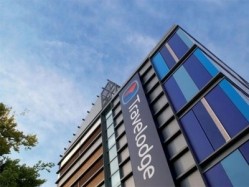London boroughs thwart hotel growth with ‘extortionate’ community levy

That’s the message given by Paul Harvey, the managing director of Travelodge, which is facing an additional £27m in taxes under the CIL scheme, for the 95 budget hotels it wants to develop across 19 of the capital’s boroughs.
In a letter to Eric Pickles, Secretary of State at the Department of Communities & Local Government, Harvey says the majority of London boroughs are using this initiative to generate additional revenues, instead of helping to drive long-term sustainable growth, job creation and investment.
He said: “In today’s post-recession economic climate, Government should be supporting businesses who are trying to help drive long term sustainable growth and not be placing barriers, such as the Community Infrastructure Levy.
“This additional development charge is being interpreted by some London boroughs as a quick-win revenue generator, when in reality by setting such high rates; they are actually losing out on long-term growth, revenue and job opportunities. It is unviable for companies such as ours to invest in new developments as a direct result of this extortionate charge.”
The borough of Islington is currently proposing two separate CIL rates in relation to hotel developments, of £250 and £350 per square metre depending on the location. Travelodge is seeking seven sites in this borough, which, under the CIL enforcement, would see its costs rise from £1.7m to £5.9m.
Economic growth
The story is similar in Barnet, which is seeking an additional £334k in tax from each of Travelodge’s two proposed developments.
“The London hotel market is the strongest in the world however its supply of branded budget accommodation is less than 20 per cent,” added Harvey. “In contrast, other major UK cities such as Manchester, Birmingham, Leeds and Glasgow boast a 30 per cent supply.
“It is evident that there is a clear need for good quality budget hotel rooms across the capital as many of the existing B&B’s and hostels offer inadequate accommodation, poor value and extortionate prices.
“However, the levels of tax being proposed by a majority of London boroughs rule out future hotel development and job creation. Therefore Eric Pickles must recognise the damage that the poorly-thought-through CIL levels will have on future economic growth, and he needs to stop Councils implementing such harmful rates of tax.”
Travelodge is the biggest hotel chain in London, operating 60 hotels and employing 1,650 people.












